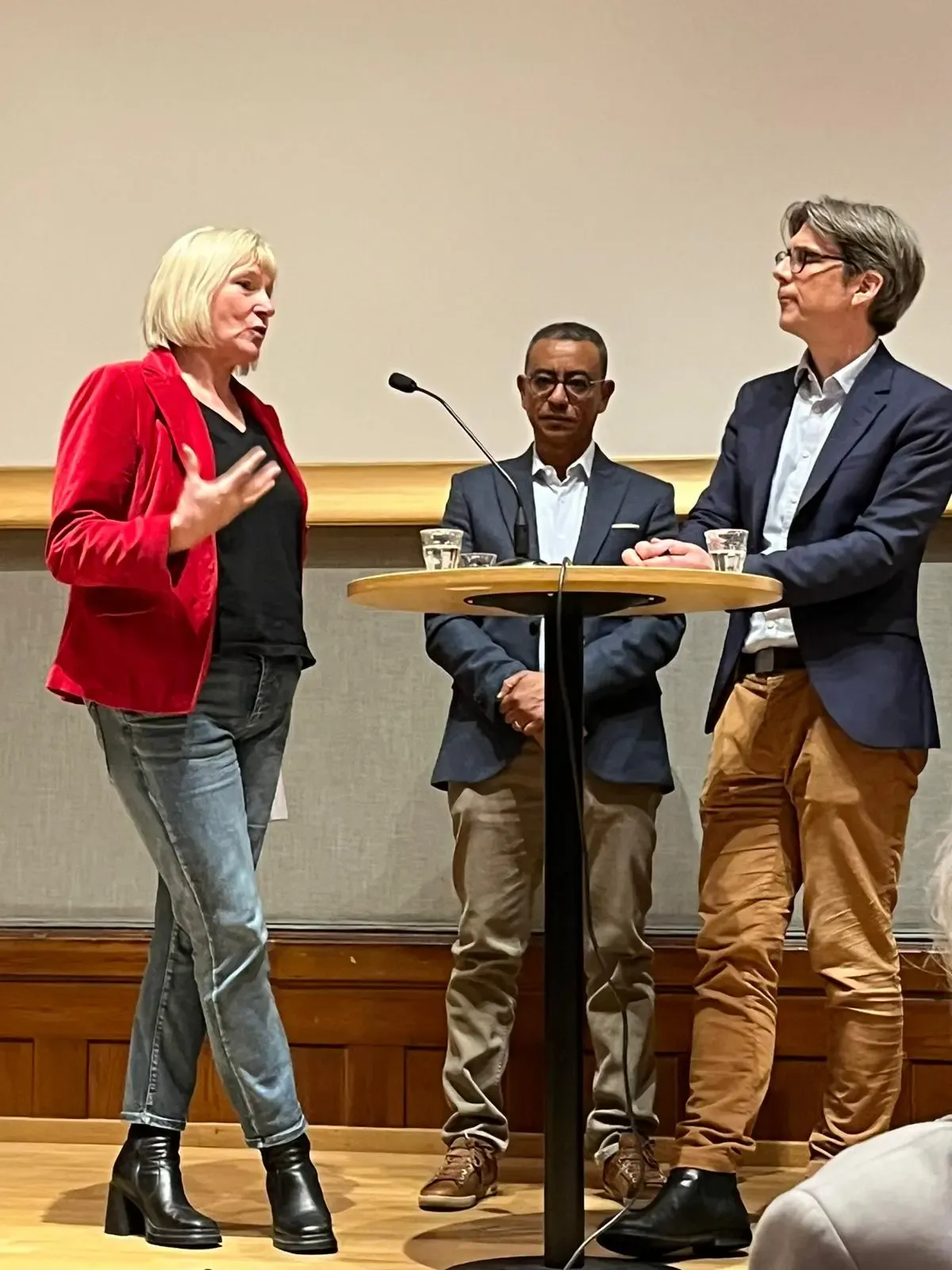The hall at the Swedish Medical Association in Stockholm was buzzing with people and conversations when the Association, along with the Centre for Health Crises at KI, organised a seminar on attacks on healthcare in conflicts and war on Thursday 2 May 2024. Those who could not make it to the capital participated online. Presentations and panel discussions with experts and health professionals working in war zones highlighted the important issue from various perspectives.
In 2022, 1,989 acts of violence against, or prevention of, health care in conflict were reported in thirty-two countries and territories, according to the Safeguarding Health in Conflict Coalition (SHCC). This is an unacceptable situation that the Centre for Health Crises and the Swedish Society of Medicine want to draw attention to, starting with a seminar on the evening of 2 May.
Focus on Gaza, Sudan, and Ukraine
The seminar paid special attention to attacks on healthcare in three current conflicts: Gaza, Sudan, and Ukraine. After a short introduction by Johan von Schreeb, Director of the Centre for Health Crises, and Tobias Alfvén, President of the Swedish Society of Medicine, four international experts presented different perspectives on the issue. Sally Alexandra Longworth, Assistant Professor at Stockholm University, highlighted the legal perspective, while Rohini J Haar, Assistant Professor at UC Berekley and Medical Advisor at the organisation Physicians for Human Rights, emphasised attacks on healthcare as an attack on human rights. Rafael van den Berg from the WHO then presented the organisation's mandate in this area, definitions of attacks on health care and the latest research they are conducting. Finally, Ahmed Abdelrahman, Director of Operations at Médecins Sans Frontières (MSF), described the reality of attacks on health workers in war and conflict.
The audience then listened to reports from health workers who are currently working, or have just finished working, in war zones; trauma surgeon Dmytro Ershov in Ukraine and surgeon Rahul Shankar Koti who has worked in Gaza, who concluded with the following comment on the need for long-term commitment:
- "The will and the desire are there, but there is no system and there is no security. We need qualified people who can not only come here and work, but who can stay here and work".
Will continue to work to raise awareness of the problem
The evening concluded with a panel discussion where representatives from professional organisations, academia, policy makers and people with personal experience of working in war-torn areas discussed what could be done to protect health care in war and conflict, and not least how to restore and maintain the respect for the laws and international agreements in the field.
- "We must persistently remind people about this, discuss it, draw attention to it, and certainly not let it be forgotten. It is our responsibility. We must emphasise principles and morals, otherwise we risk shifting norms until we end up in a society where we don't want to be", says Johan von Schreeb, Director of the Centre for Health Crises.

Will continue to work to raise awareness of the issue
Both during the panel discussion and the mingle after the seminar, the question "what needs to be done to bring about change" was discussed at length. During the panel discussion, Anneli Eriksson, research specialist in the research group Global Disaster Medicine - Health Needs and Responses at KI, argued that universities have an important role in documenting, analysing, and highlighting, for example, public health issues, as well as discussing the issue as part of teaching.
The organisers of the seminar, the Centre for Health Crises and the Swedish Society of Medicine, will continue to try and bring attention to the issue of attacks on health care, with the aim of raising awareness and advocating for change.






